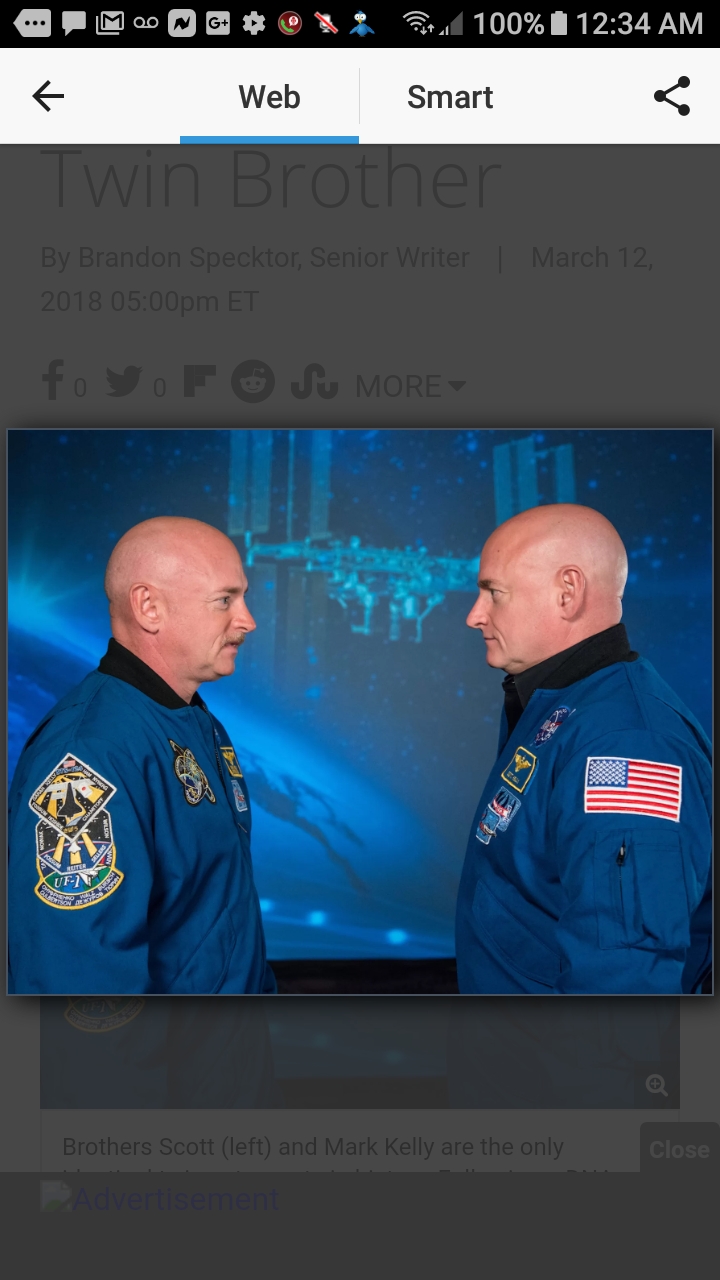Scott Kelly Spent a Year in Space, and Now He Has Different DNA Than His Identical Twin Brother

Scott Kelly Spent a Year in Space, and Now He Has Different DNA Than His Identical Twin Brother
By Brandon Specktor, Senior Writer | March 12, 2018 05:00pm ET
Brothers Scott (left) and Mark Kelly are the only identical twin astronauts in history. Following a DNA-altering space mission, they may not be identical anymore.
Credit: Courtesy NASA Twins Study
Scott and Mark Kelly are identical twin brothers — at least, they were until Scott spent a year living in space.
When Scott Kelly returned to Earth after a 340-day voyage aboard the International Space Station (ISS) two years ago, he was 2 inches taller than he'd been when he left. His body mass had decreased, his gut bacteria were completely different, and — according to preliminary findings from NASA researchers — his genetic code had changed significantly. (Interestingly, Scott Kelly has since shrunk back down to his initial prespaceflight height.)
Meanwhile, Scott Kelly's identical twin brother, Mark (a retired astronaut, himself), remained on Earth as a control subject. The Kelly brothers are the only twin astronauts in history, NASA said. Because identical twins are born with identical DNA — the genetic code that tells cells when and how to work — the Kellys made ideal subjects for before-and-after comparison.
Researchers tested both Kelly brothers before, during and after Scott's year in space to map specific changes in the astronauts' physical and mental health. Most of Scott's physical changes — including his 2-inch height gain — proved to be temporary responses to the low-gravity, low-oxygen environment of space, NASA said.
However, genes involved in bone formation, oxygen deprivation, immune system responses and DNA repair remained transformed after Scott Kelly's return to Earth, NASA reported. The reason behind this could involve a complicated reaction to an unusual type of stress: the stress of space.
"Oftentimes, when the body encounters something foreign, an immune response is activated," Christopher Mason, a Twins Study researcher and an associate professor at Weill Cornell Medical College, told Business Insider. "The body thinks there’s a reason to defend itself. We know there are aspects of being in space that are not a pleasant experience, and this is the molecular manifestation of the body responding to that stress."
Understanding why and how these "space genes" activate will be crucial to planning longer manned space missions. The way NASA sees it, Scott Kelly's year in space is a significant "stepping stone to a three-year mission to Mars."
More than 200 researchers in 30 states are helping to analyze the Kelly brothers' various test results, looking for space-induced changes in Scott Kelly's cognition, metabolism, microbiome and many other physiological processes. NASA will publish the comprehensive findings of these tests in a single study later this year.
Originally published on Live Science